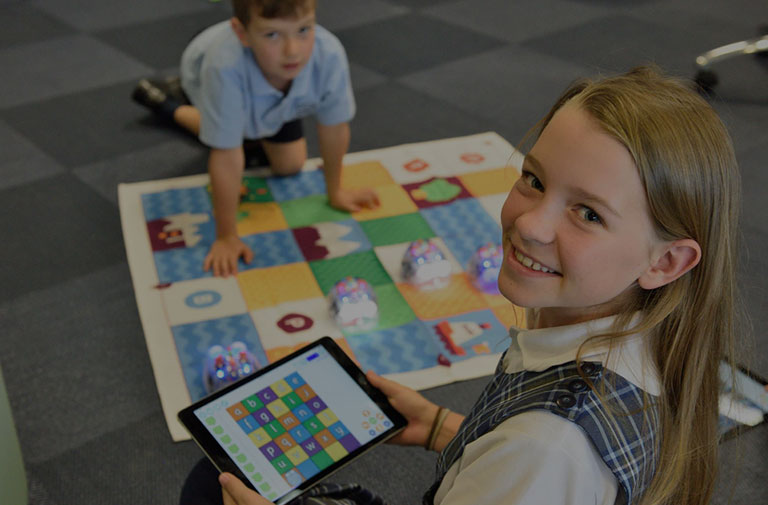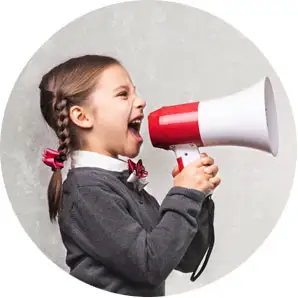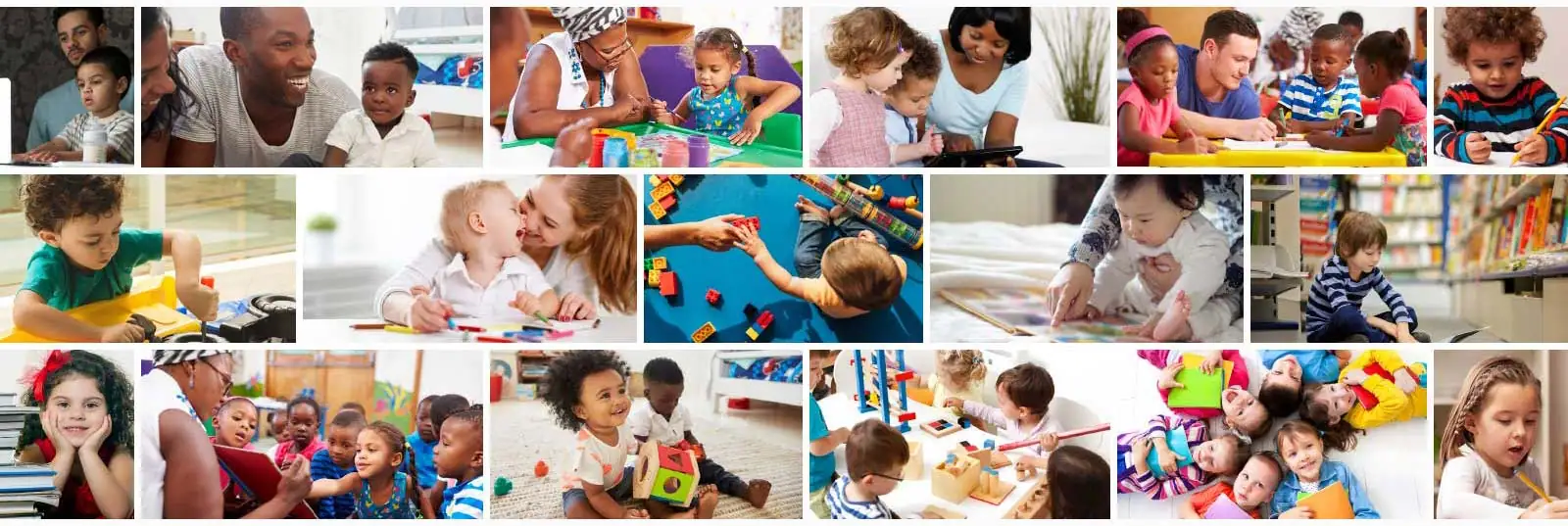About the Poll
Since 2017, Tennesseans for Quality Early Education has commissioned Public Opinion Strategies to conduct an annual survey to gauge voter support for policy proposals to improve early education outcomes in Tennessee.
This year’s poll results highlight voter concern regarding the COVID-19 pandemic’s effect on learning, while also showing Republicans and Democrats are united in their support for prioritizing investments in early care and education to mitigate learning loss, accelerate academic achievement, and better prepare children for success in life.
The findings are from 600 registered Tennessee voters and cut consistently across the state’s political, demographic and geographic lines. The poll was conducted between August 30 and Sept. 1, 2021, with a margin of error of +/- 4 percentage points.
Five Things You Need to Know
1. Tennessee voters named COVID-19 as the biggest problem facing Pre-K through 3rd grade classrooms in the state.
Tennessee voters believe the COVID-19 pandemic is the most important problem facing Tennessee’s Pre-K through third grade classrooms, and 79 percent are worried that too many school children fell behind in math and reading proficiency due to school disruptions.
To mitigate learning loss and accelerate academic achievement, voters strongly favor more investments in:
- Tutoring for children to help them catch up (92 percent)
- Optional summer learning camps for K – third grade children not reading at grade level (86 percent)
- School nurses to improve kids’ health and reduce chronic absenteeism (90 percent)
- School counselors to help children struggling with mental health (91 percent)
Agree or Disagree? Too many Tennessee school children fell behind in math and reading proficiency due to school disruptions caused by the COVID pandemic.
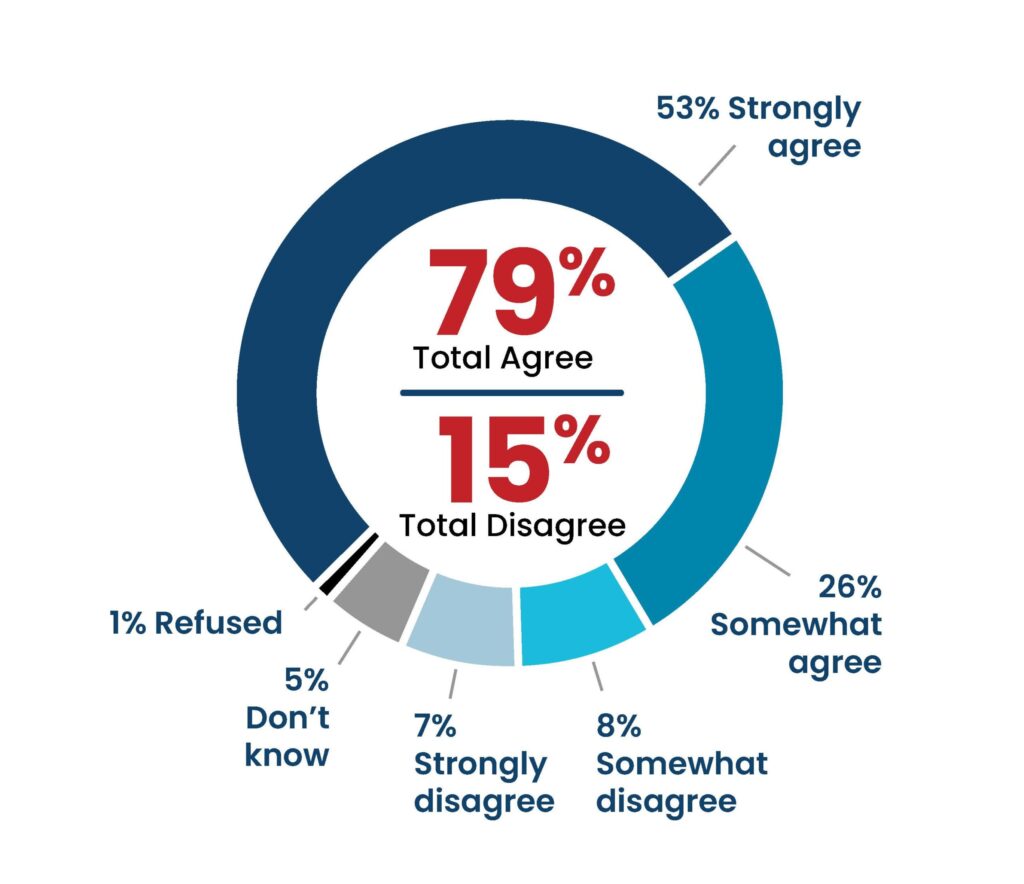
2. Nearly every Tennessean recognizes the critical connection of early education to future academic and life success. But they have low confidence in the state’s public education system.
Agree or Disagree? Early education, from birth to 3rd grade, provides the building blocks of all future learning.
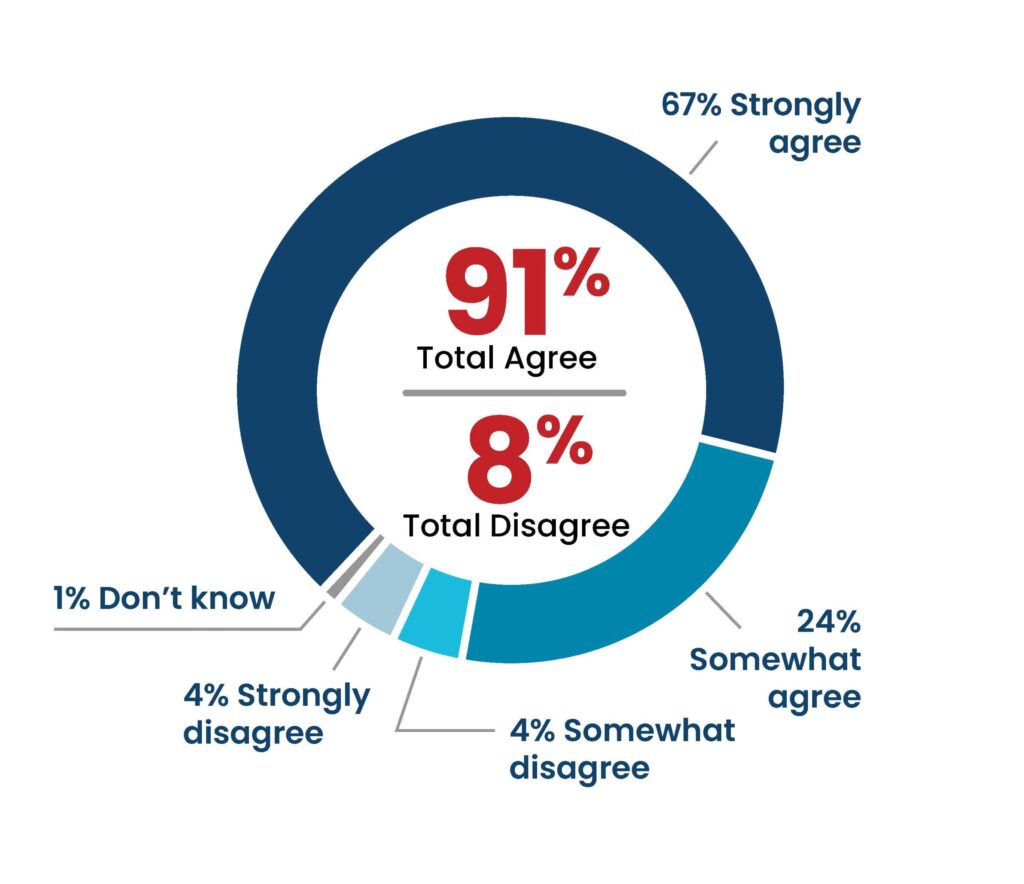
Ninety-one percent (91%) of voters agree with the statement, “Early education, from birth to 3rd grade, provides the building blocks of all future learning.” In today’s polarized political world, it is rare to find a consensus across the partisan divide, still 90% of Republicans and 94% of Democrats agree with the statement above.
But the public education system in Tennessee continues to receive poor reviews from the state’s voters.
For the fourth straight poll, a majority (53%) of voters see the state’s public education system as being on the wrong track. The negative view on the direction of the public education system cuts across every demographic, political and geographic subgroup in the poll.
In addition, 62% of Tennesseans believe the state’s public education system is NOT preparing children for future life. Majorities of voters across all subgroups share this pessimistic outlook.
3. Voters want more Pre-K. A lot more.
Expanding the state’s voluntary Pre-K program is another policy receiving wide bi-partisan support across Tennessee. Fully, 89% of Tennesseans – including 89% of Trump voters and 90% of Biden voters — believe the program should be available to all Tennessee 4-year-olds.
Additionally, 85% of voters – including 81% of Republicans and 93% of Democrats – support increasing state funding for the voluntary Pre-K program to ensure slots for all disadvantaged children.
And, 87% of Tennessee voters support increasing state funding for the voluntary Pre-K program to allow every 4-year-old the option to attend. Large majorities of every subgroup endorse Pre-K expansion.
Voters find policymakers who support Pre-K expansion very appealing.
4. Voters support investments in early literacy, math and “early workforce skills” Pre-K through third grade.
Ninety-one percent of voters say Tennessee should invest in early literacy programs to ensure children can read by third grade, and 92 percent want to invest more to establish math proficiency by third grade. Additionally, voters clearly recognize the foundation for workforce readiness is laid in the early years. Ninety-one percent support investments that ensure “early-workforce skills,” including problem solving, cooperation, sharing, taking turns, following instructions and maintaining focus on tasks.
5. Republicans and Democrats alike overwhelmingly endorse initiatives to strengthen child care programs and expand access to working families.
Eighty-seven percent of voters believe child care has a major impact on a child’s readiness to be a good learner when they enter kindergarten, and 86 percent think it has a major impact on children’s long-term well-being and future job success. Eighty-seven percent favor expanded child care assistance for low and middle-income families, so that parents can afford to work.
Additionally, voters overwhelmingly believe that the quality of child care matters. Ninety-two percent support increased investments in training for teachers, and 82 percent favor requiring providers to meet quality standards.
The Time To Act Is Now
Quality early care and education birth through third grade is not just important, it’s urgent. And our survey results reflect that Tennessee voters agree. The time is now to advance smart policies and practices that close achievement and opportunity gaps, and support success of young children who will ultimately shape our state’s future. Join our coalition today and lend your voice to the cause. Together, we can make a difference.
Join 30,370 TQEE Coalition Members
and support early education in Tennessee


